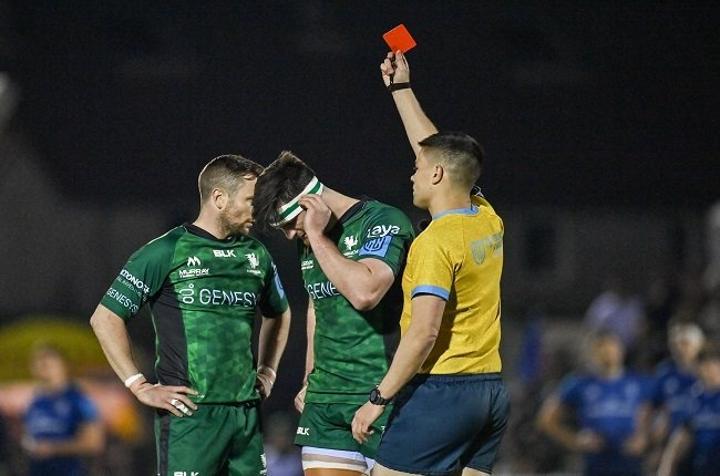Africa-Press – South-Africa. Tappe Henning, the United Rugby Championship’s head of match officials, has preached caution in World Rugby’s quest to expand the 20-minute red card law trail.
The controversial proposal, which is currently in use in this year’s Super Rugby Pacific tournament, decrees that an offending player is sent off for that period of time and is then replaced by a substitute.
Yet while the rule goes a long way towards protecting the integrity of a contest in terms of 15 playing 15, there’s widespread concern that it will do little to deter players from engaging in dangerous and foul play.
“If you want to change player behaviour in terms of preventing head shots and such offences, the punishment must fit the crime,” Henning said during a comprehensive media briefing with journalists from all URC countries on Wednesday.
“How do you change behaviour with ‘soft’ decisions? There must be a tangible consequence for players. They must come to the realisation that they must take more care because they can cost their sides dearly. That’s the situation we find ourselves in.”
Tappe Henning. (URC)
To date, it’s understood that Super Rugby’s closed trial has delivered inconclusive results.
However, Henning acknowledges that red cards have, in certain circumstances, a ruinous effect on a match as a spectacle.
He references the recent Six Nations match between Ireland and England, which saw Roses lock Charlie Ewels sent off after just 82 seconds.
“My understanding is that there’s a lot of information being collected on this issue and that pleases me,” said Henning, a former South African Test referee.
“We have to protect the integrity and enjoyment of 80-minute rugby with 15 against 15 that people paid for. It really does appear that at some stage of a match where a red card has been given, the contest suffers, be it in the final quarter or from the outset of the sanction.”
Given the complexity of the debate, Henning doesn’t suggest a compromise as much as simply coming to an informed decision along the line and sticking to it.
“We will continue to investigate. I believe we’ll find an appropriate solution,” he said.
“A lot of research needs to be done. We shouldn’t adopt a 20-minute red card law and then after two years decide that it’s not working and we need to change it again.
“Rather take enough time to develop a law with the best potential outcome.”
For More News And Analysis About South-Africa Follow Africa-Press






